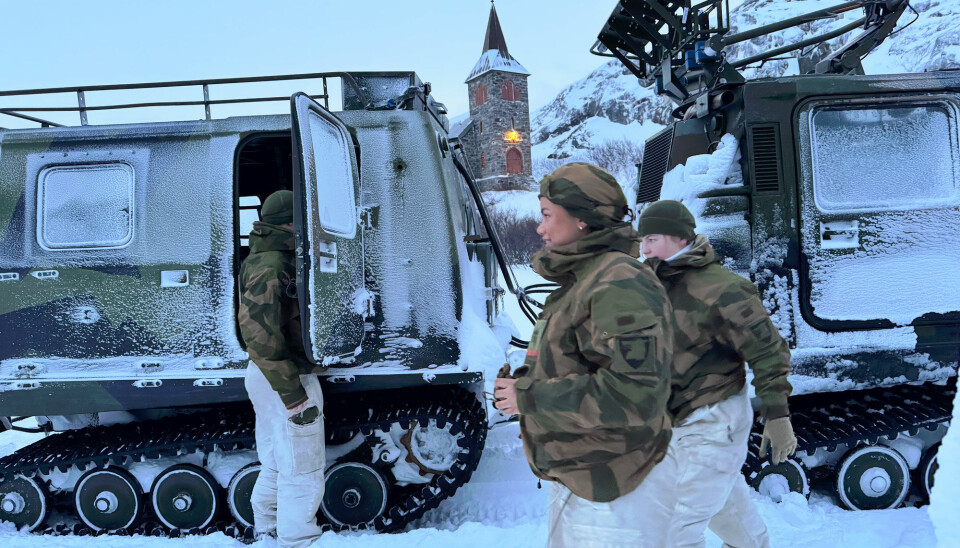
Christmas in Grense Jakobselv comes with a prayer for peace
“With the small child in the cradle came light to the world, and this light prevails over darkness and brings salvation, peace and hope,” the garrison priest told the soldiers that on Christmas Day gathered in the small church located only a stone’s throw from the border to Russia.
The polar darkness descended over the Varanger area as a column of amphibious all-terrain carriers made it across the snowy lands towards Grense Jakobselv.
Snow mobiles and the Bv 206 “susvee” are main winter-time vehicles for the Norwegian armed forces that guard the far northern border to Russia.
The geopolitical situation is increasingly tense. As the amphibious carriers approached the borderline, a Russian military helicopter flew low over the small creek that separates the two countries and landed in a nearby Russian border base.
“There is a high level of activity on the Russian side,” a serviceman told the Barents Observer.
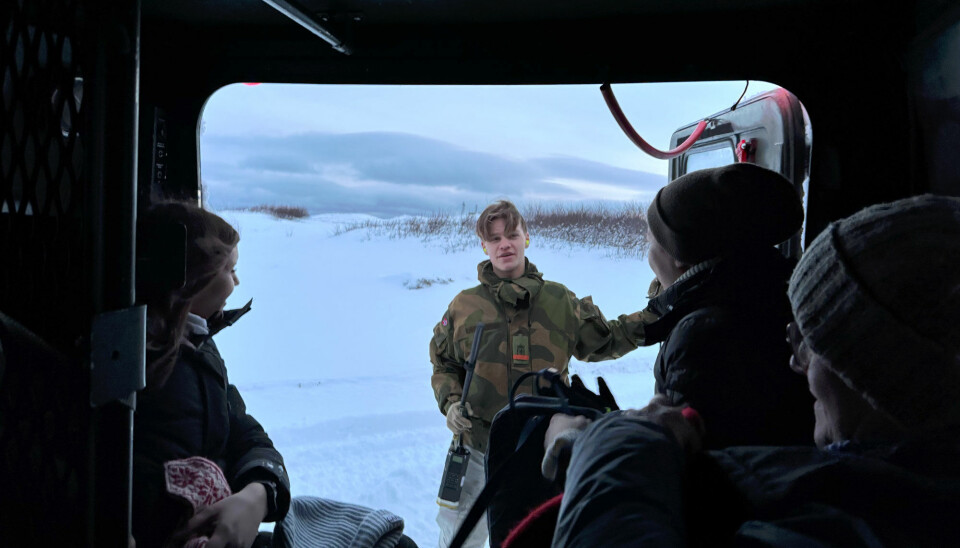
Moscow’s war of aggression against Ukraine and the increasingly hostile policies towards Western democracies have brought relations with the Russians to a full halt. Acts of sabotage and attempts to destabilize the neighboring Nordic countries have added freeze over the borderland.
Nevertheless, the Sør-Varanger Garrison continues its tradition to bring its rangers and military personnel to the church in Grense Jakobselv on Christmas Day.
“This church is like a border marker,” says garrison priest Gaute Norbye.
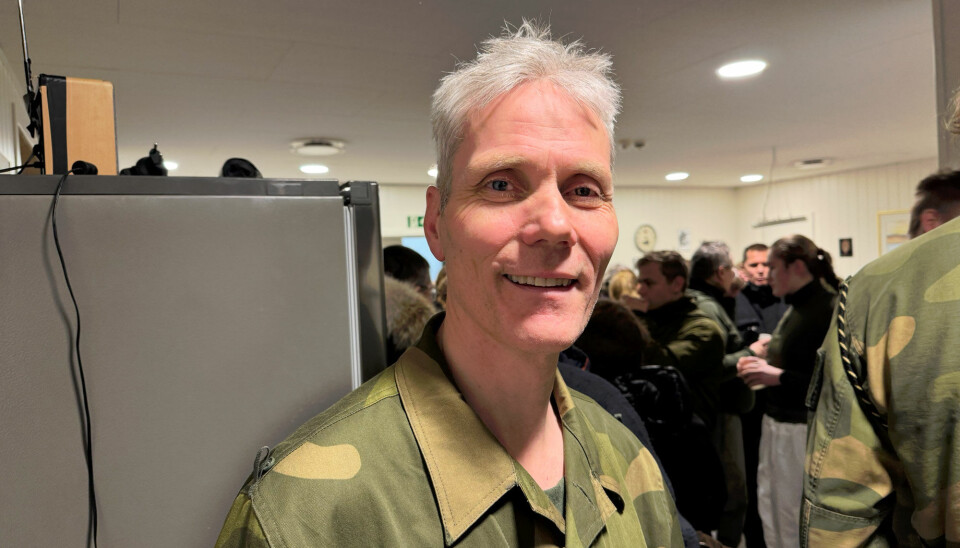
“It stands here to show that this is our land, and we eagerly celebrate Christmas Day here every year because we believe we are in possession of something great and valuable; we have peace, democracy and human rights, and these are values that must be protected,” he told a full house of rangers and civilian churchgoers.
“The small child in the cradle brought light and this light can win over darkness in the world,” the priest said in his sermon. “People need this light,” he underlined.
The stone church in Grense Jakobselv was built in 1869 and has lived through periods of war and conflict in Tsarist, Soviet and Post-Soviet times.
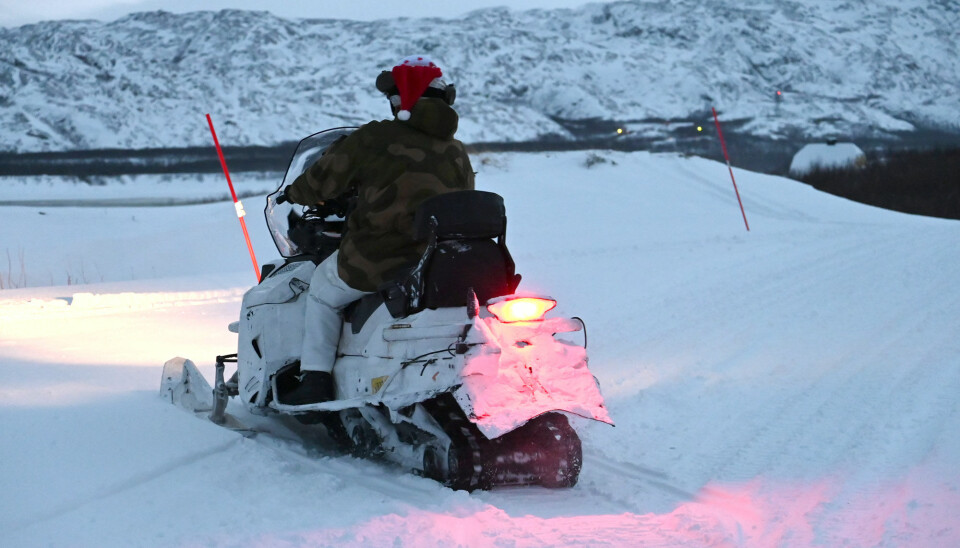
Gaute Norbye has served as priest in the Sør-Varanger Garrison for the past four months. He believes the church can help promote peace and reconciliation.
“The fact that they decided to build a church here and not a military base shows a kind of trust in our ever-present God and it gives us a basis for creation of peace and reconciliation between each others and between us and God.”
What is the role of the Church today?
-The most important role of the Church is to be a marker for reconciliation.
The world needs reconciliation and the most important contribution of the Church is to bring hope for reconciliation amid all evil. What we did today is important; we prayed for peace and wisdom to the the leaders, even if we completely disagree with their way of leadership.
Is reconciliation possible?
-Even though reconciliation seems remote, we can not stop talking about it. I can not force you to reconcile with me, but I can be the one that does not lose hope, who continues to long for reconciliation and the one that is ready to facilitate for you to meet me in the end.
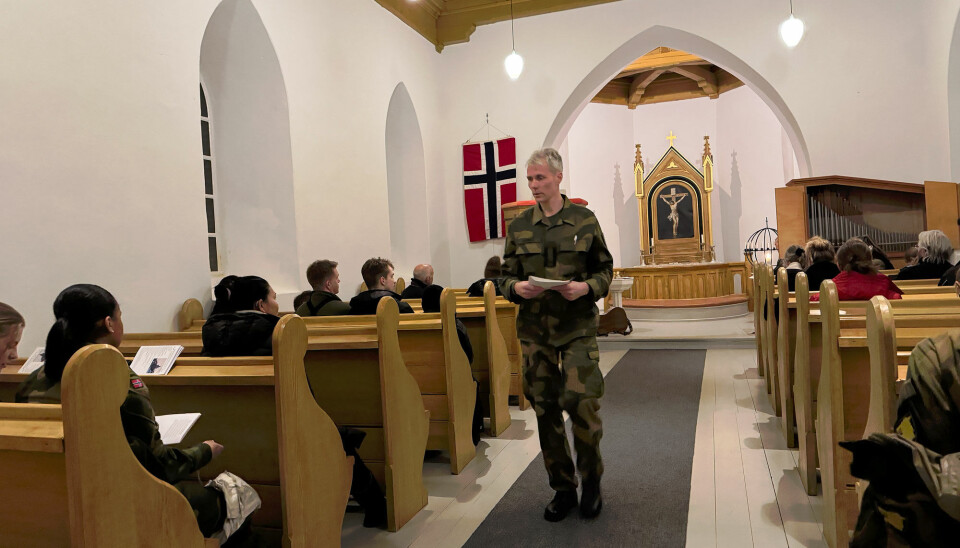
Has the geopolitical situation cast pitch darkness over this area?
-It is nothing new that there is darkness in this region. Conflicts across the world are not new, the fact that we have conflicts is nothing new. But we have made it through conflicts before. Should we stop hoping for an end to them? Should we let darkness win? Should we say that darkness, evil and hate can win? No, I want to continue to light candles. I can curse darkness, but it will not make any difference, it only makes things worse. But when there is light there is a possibility for encounters and peace.
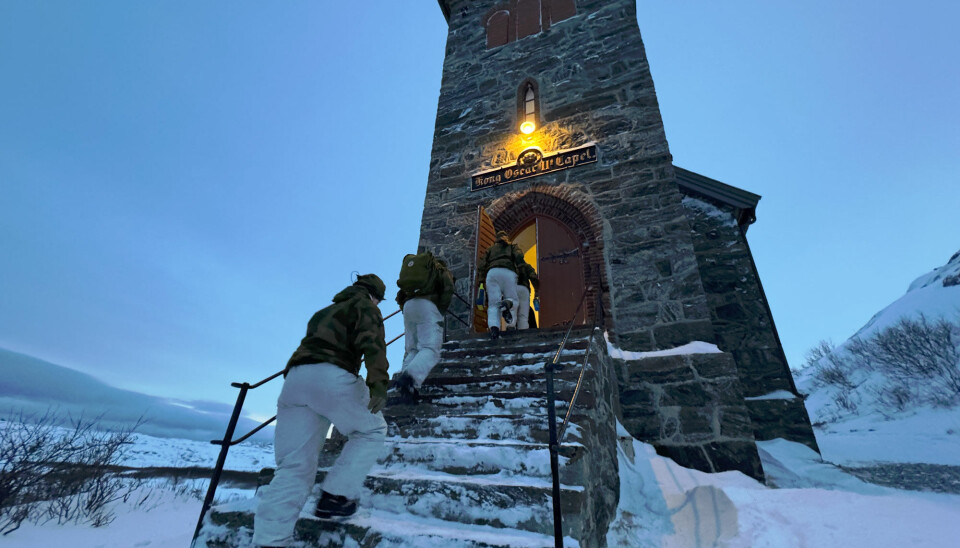
With what feelings did you go to Grense Jakobselv this year?
-I am new in the job and this was the first time I held a service on the border. In the beginning of the mass, I was strongly moved by the magnificence of being here in the furthest end of our country on the border to a system that we do not want. We belong to a nation that treasures human rights, democracy and such values and this all struck me with strong feelings during the church service.
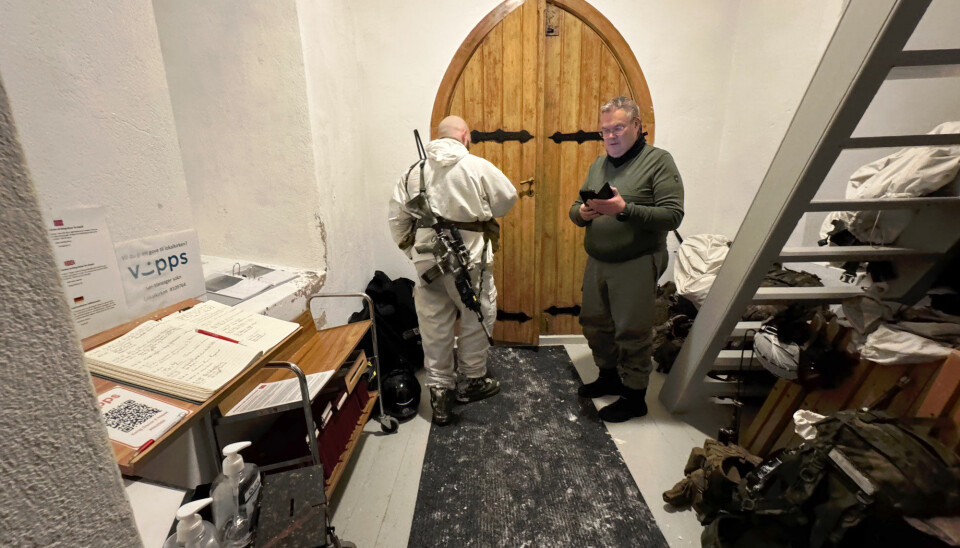
What would you say to the people on the other side of the border?
-Every time I am by the borderline and look across, I imagine that there are people on the other side that wonder why the situation is like it is. I believe the majority of us on both sides of the border actually wonder why it is like this. Why do we look this way at each other? We do not really want it this way. But the system has made it like this. It is only sad.
What would I say to people on the other side? I would simply say: Hello
See also: Norwegian artist Moddi plays Punk Prayer on the church steps of King Oscar's chapel (video story)













